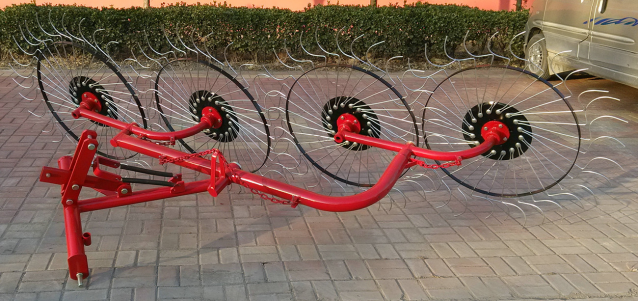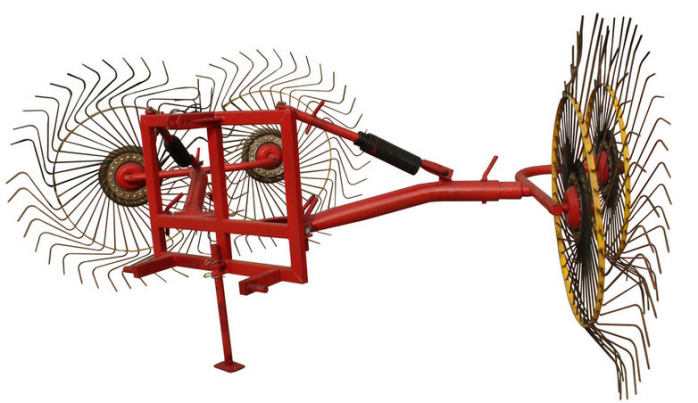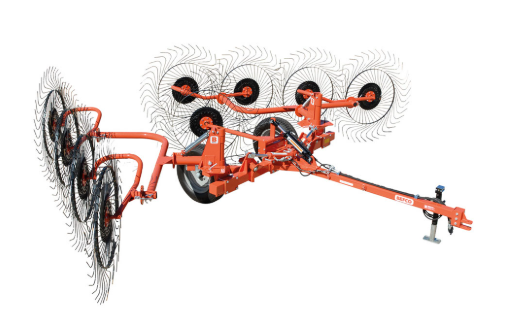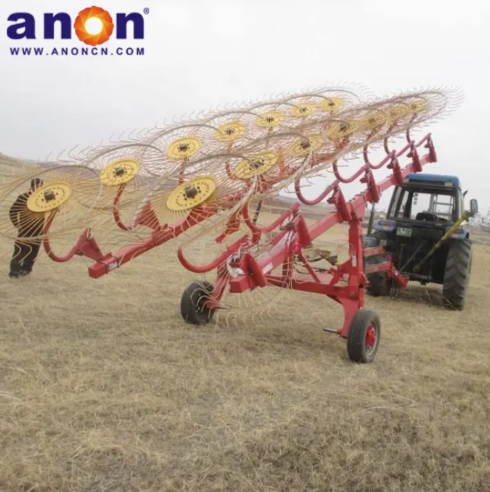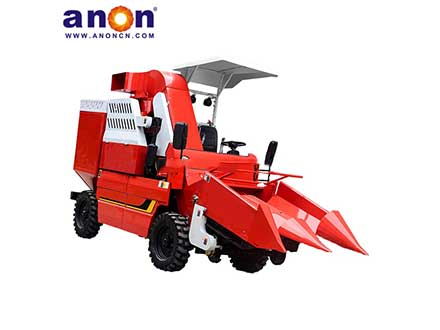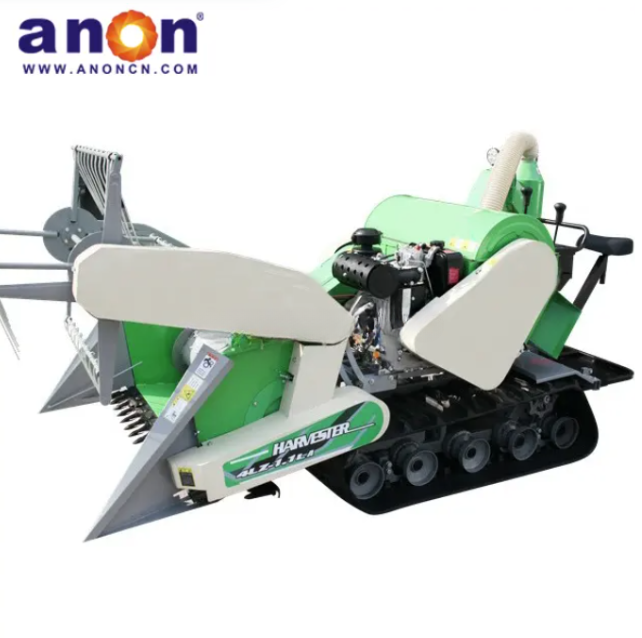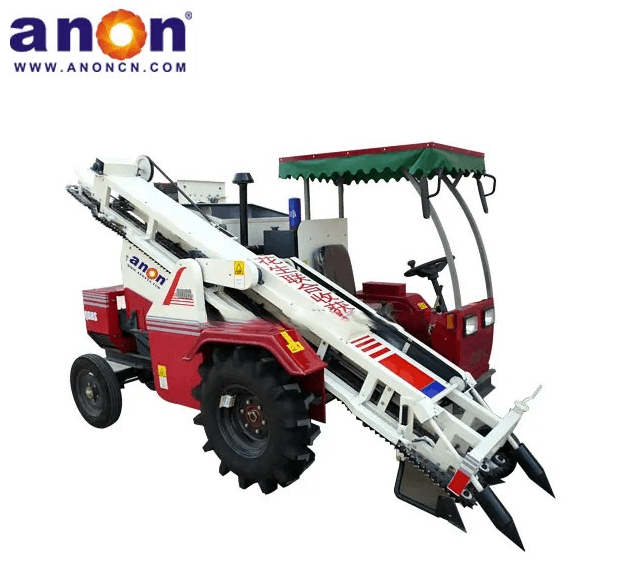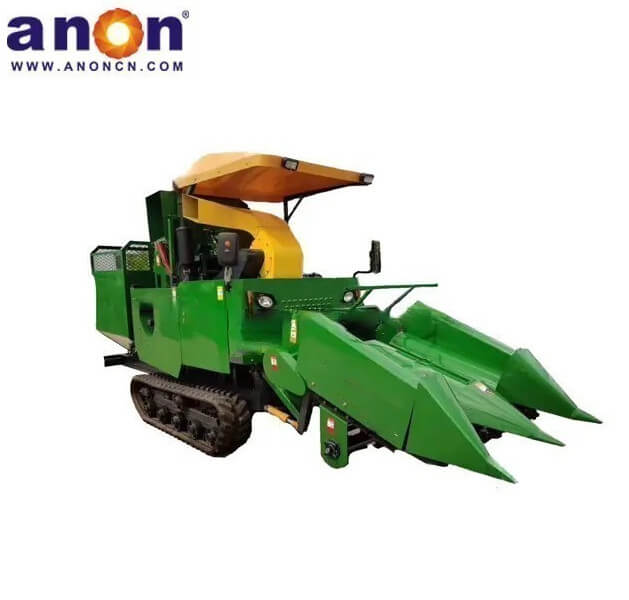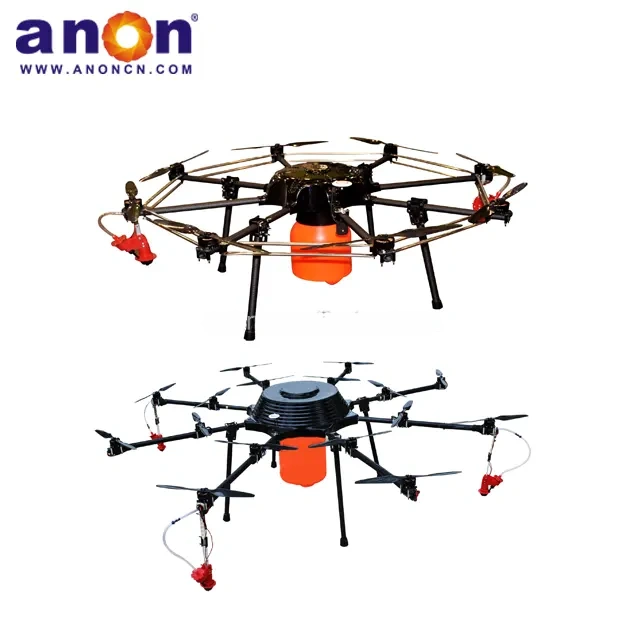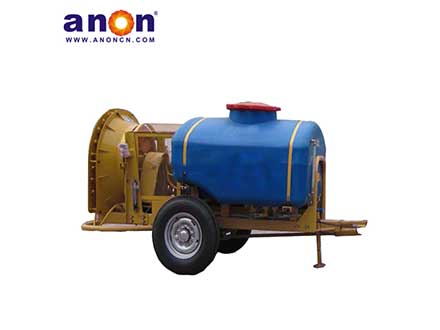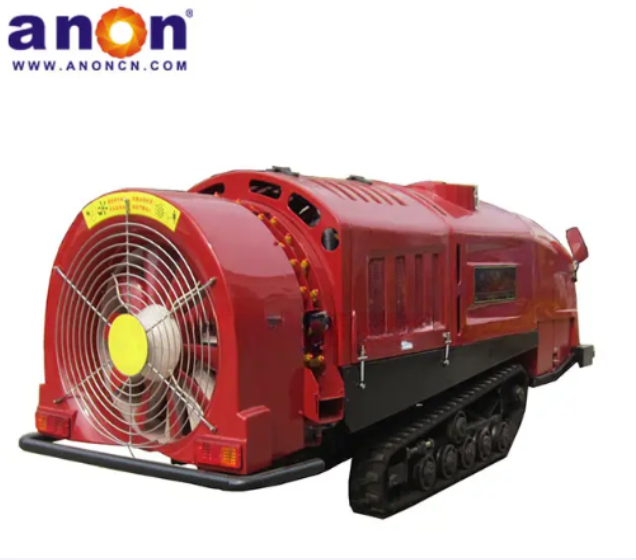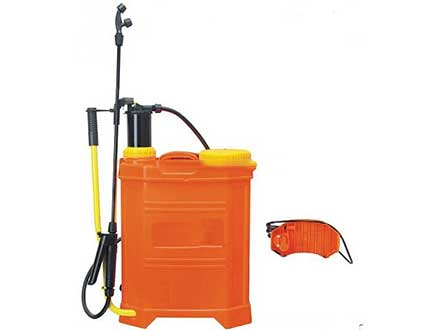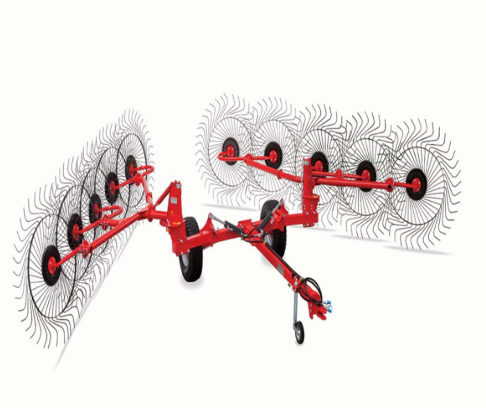
Wheel Rake
1. No complex hydraulic or power transmission system, low failure rate, easy maintenance.
2. Multiple sets of wheel rake are linked, wide raking width and a fast speed.
3. Adjustable working angle and width to adapt to different crops and ground conditions.
4. Less soil mixed in the raking process, less grass damage, and retaining feed quality.
5. The hay wheel rake can both rake and turn the grass for drying.
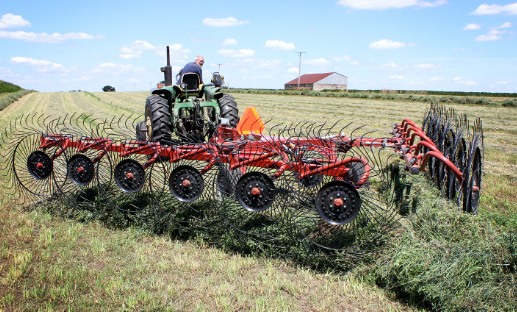
Structural characteristics
The hay wheel rake adopts a three-point suspension design, which can be seamlessly connected with the mainstream small and medium-sized wheeled tractors on the market. The tractor directly drives the grass rake finger wheel to rotate through the PTO, without the need for additional transmission parts, reducing power loss. The finger wheel adopts a radial layout, and the rake teeth are high-quality spring steel teeth, which can fit the undulations of the ground and reduce the phenomenon of missing rakes. The ground pressure of the rake teeth can be adjusted by stretching the adjustment plate to adapt to soils of different hardness and ensure the quality of gathering grass strips or residual film.
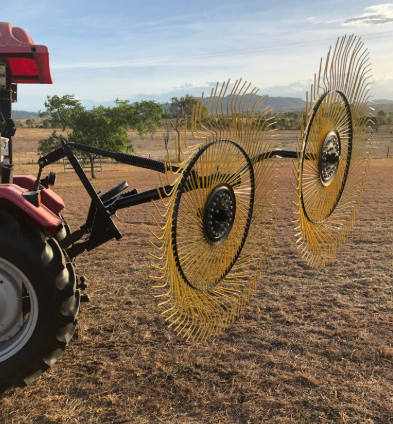
Applications
ANON wheel rakes are widely used in the arrangement and collection of forage in livestock breeding areas, and in the centralized field operations of grain crop straw such as wheat, corn, rapeseed, etc. It is particularly suitable for agricultural machinery cooperatives, pastures, and farmers’ own use. With the advantages of a simple structure and strong adaptability, it performs particularly well in hilly and mountainous areas or agricultural scenes that are more sensitive to cost.
FAQ
First of all, according to the selection of the operating area, it is recommended to choose a wheeled rake with high operating efficiency for large-area operations.
Then you need to match your tractor power, making sure that the matching power of the rake matches the power output of the tractor.
Finally, it is necessary to choose according to the conditions of the grassland, for the high-yield grassland or the scene that needs to collect straw, the finger wheel rake is a better choice.
The shape of the grass strips is neat, loose and uniform, and the forage movement distance is small, and the inclusions are less, which is conducive to the subsequent drying and baling operations.
It is not recommended, the straw straw is high, tough, easy to wind the teeth, and the wheeled rake tooth design is more suitable for forage, it is recommended to use a reciprocating rake or a special straw rake equipment.

